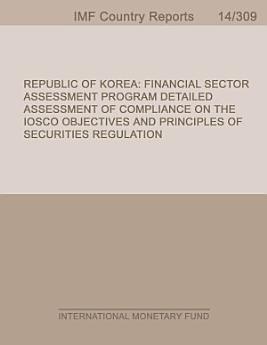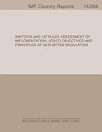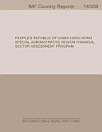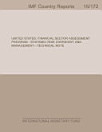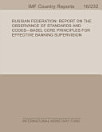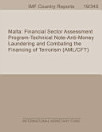Republic of Korea: Financial Sector Assessment Program-Detailed Assessment of Compliance on the IOSCO Objectives and Principles of Securities Regulation
International Monetary Fund. Monetary and Capital Markets Department
Oct 2014 · International Monetary Fund
Ebook
157
Pages
reportRatings and reviews aren’t verified Learn More
About this ebook
SUMMARY The Korean authorities have made significant progress since the last FSAP in revising the securities regulatory framework, with the current framework achieving good overall compliance with the International Organization of Securities Commissions (IOSCO) Principles. Importantly, the earlier legal impediments to international cooperation and exchange of information have been removed. Since 2011, Korea also applies the Korean International Financial Reporting Standards (K-IFRS) that follow the International Financial Reporting Standards (IFRS). Although the regulators’ responsibilities are defined in legislation, the complexity of the structure obscures the transparency of the decision-making processes. The responsibility for deciding on a particular supervisory or enforcement action can lie either at the Financial Services Commission (FSC), Securities and Futures Commission (SFC), or Financial Supervisory Service (FSS), depending on the nature and gravity of action, but it is not always clear which one of them is ultimately in charge. The process is further complicated by the use of pre-deliberation committees at various levels. Self-regulatory organizations—the Korea Exchange (KRX), the Korea Financial Investment Association (KOFIA) and the Korean Institute of Certified Public Accountants (KICPA)— also play a role in the regulatory and supervisory processes. Publication of additional information on the decision-making structure and processes would be beneficial. Operational cooperation and coordination between the various authorities is currently addressed by having the agencies represented in each others’ decision-making bodies. However, the full participation of the Minister of Strategy and Finance at the FSC Board has the potential of compromising the independence of the FSC’s supervisory and enforcement decisions. Consideration should be given on how best to mitigate the potential for undue political influence arising from such governance arrangements by, for example, restricting the participation of the Minister of Strategy and Finance in the supervisory and enforcement decisions. Attention should also be paid to ensuring that the various arrangements for gathering commercial input provide for equal and transparent treatment of market participants.
Rate this ebook
Tell us what you think.
Reading information
Smartphones and tablets
Install the Google Play Books app for Android and iPad/iPhone. It syncs automatically with your account and allows you to read online or offline wherever you are.
Laptops and computers
You can listen to audiobooks purchased on Google Play using your computer's web browser.
eReaders and other devices
To read on e-ink devices like Kobo eReaders, you'll need to download a file and transfer it to your device. Follow the detailed Help Center instructions to transfer the files to supported eReaders.
